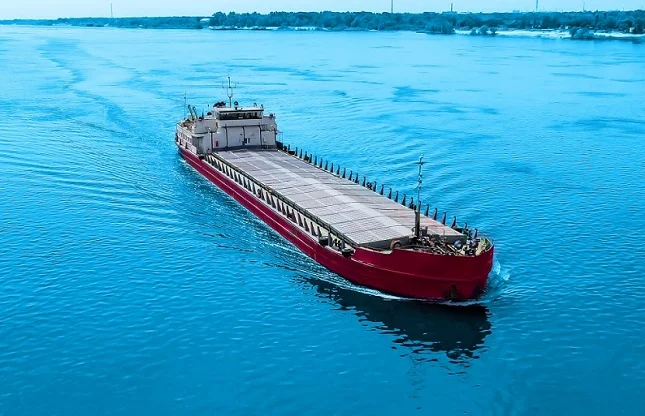As the Black Sea Grain Initiative ceased to function from Tuesday, Russia has made it clear that any move by Ukraine to resume food supplies through the troubled region without Moscow’s participation will pose a great deal of danger.
The United Nations-backed initiative between Russia, Ukraine and Turkey was signed on July 22 last year along with another Memorandum of Understanding (MoU) between the Russian Federation and the UN to facilitate unimpeded exports of its food and fertilizer.
The package deal, aimed at supplying markets with food and fertilizer amid global shortages and rising prices exacerbated by the Russia-Ukraine conflict, got repeated extensions till Russia informed the UN, Turkish and Ukrainian sides about the termination of agreement on Monday.
A few hours later, during his regular night video address to the nation, Ukrainian President Volodymyr Zelensky revealed that he has sent official letters to Turkey’s President Recep Tayyip Erdogan and UN Secretary-General Antonio Guterres with a proposal to continue the Black Sea Grain Initiative “or its analog” in a trilateral format.
Evening speech from Zelenskyi:
I have sent official letters to the President of Turkey Erdogan and UN Secretary General Guterres with a proposal to continue the work of the Black Sea Grain Initiative or its counterpart in a tripartite format – in the most reliable way. Ukraine,… pic.twitter.com/UhtwacW38h
— NOELREPORTS 🇪🇺 🇺🇦 (@NOELreports) July 17, 2023
“Ukraine’s position has always been and will be as clear as possible – no one has the right to destroy the food security of any nation. If a bunch of people somewhere in the Kremlin think that they supposedly have the right to decide whether food will be on the table in different countries: Egypt or Sudan, Yemen or Bangladesh, China or India, Turkiye or Indonesia… then the world has an opportunity to show that blackmail is not allowed to anyone,” said Zelensky.
Mandla Nkomo, Chief Growth Officer at CGIAR Excellence Initiative in Agronomy says that Russia’s decision to suspend the Black Sea Grain Deal is a big blow to the African continent. He submits that the continent is likely to see a surge in food prices as a result of that action. pic.twitter.com/UowGwiRVlT
— CGTN Africa (@cgtnafrica) July 18, 2023
Moscow was quick to point out that the termination of the initiative also includes the withdrawal of Russian security guarantees for navigation in the zone close to the area of hostilities, including the northwestern part of Black Sea.
“If something is formalised without Russia, these risks should be taken into account. Even if we take this zone for the implementation of the grain deal, it is no longer a secret to anyone that it is used by the Kyiv regime for military purposes, this is a very important aspect,” Russian President Vladimir Putin’s Press Secretary Dmitry Peskov told local media in the Russian capital on Tuesday.
According to the UN agencies, nearly one year into the agreement, more than 32 million tonnes of food commodities have been exported from three Ukrainian Black Sea ports to 45 countries across three continents.
The initiative, it said, not only unblocked vital food commodities but also helped reverse spiking global food prices that had reached record highs due to the ongoing war between Russia and Ukraine.

“Ultimately, participation in these agreements is a choice. But struggling people everywhere and developing countries don’t have a choice. Hundreds of millions of people face hunger and consumers are confronting a global cost-of-living crisis. They will pay the price,” said Guterres earlier today.
Russia, on the other hand, stated that, contrary to the declared humanitarian goals, the export of Ukrainian food was almost immediately transferred to a purely commercial basis and until the last moment was “aimed at serving the narrowly selfish interests of Kyiv and its Western curators”.
In a statement, the Russian Foreign Ministry mentioned that more than 70% (26.3 million tonnes) of the total 32.8 million tonnes of cargo exported during the operation were sent to countries with high and upper middle income levels, including the European Union and the poorest states, notably Ethiopia, Yemen, Afghanistan, Sudan and Somalia, accounted for less than 3%, totaling 922,092 tonnes.
“Westerners, in fact, earn twice – both on the sale and on the processing of grain. In addition, the US and EU speculate on prices, creating an artificial shortage of goods, and oust Russian agricultural products from world markets through the imposition of illegal unilateral sanctions,” it said.
.@TonyGosling says Russia’s refusal to extend the Black Sea Grain Initiative was a natural reaction to the other side’s lack of commitment to the deal.
Follow Press TV on Telegram: https://t.co/7h1TYXZOQt pic.twitter.com/JTP5gVbLRr
— Highlights (@highlightsnews1) July 18, 2023
The Kremlin has also accused Kyiv of carrying out provocations and attacks against Russian civilian and military facilities under the cover of the humanitarian corridor and shipping.
“In fact, the ports controlled by Kyiv and the safe corridor opened by Russia for the export of Ukrainian grain were used to carry out terrorist attacks in violation of the spirit and letter of the Black Sea Initiative,” the statement detailed.
Russia also emphasised that it will only be upon receipt of concrete results – including removal of Russian fertilizers and food from the sanctions list – that it will be ready to consider restoring the deal.




















